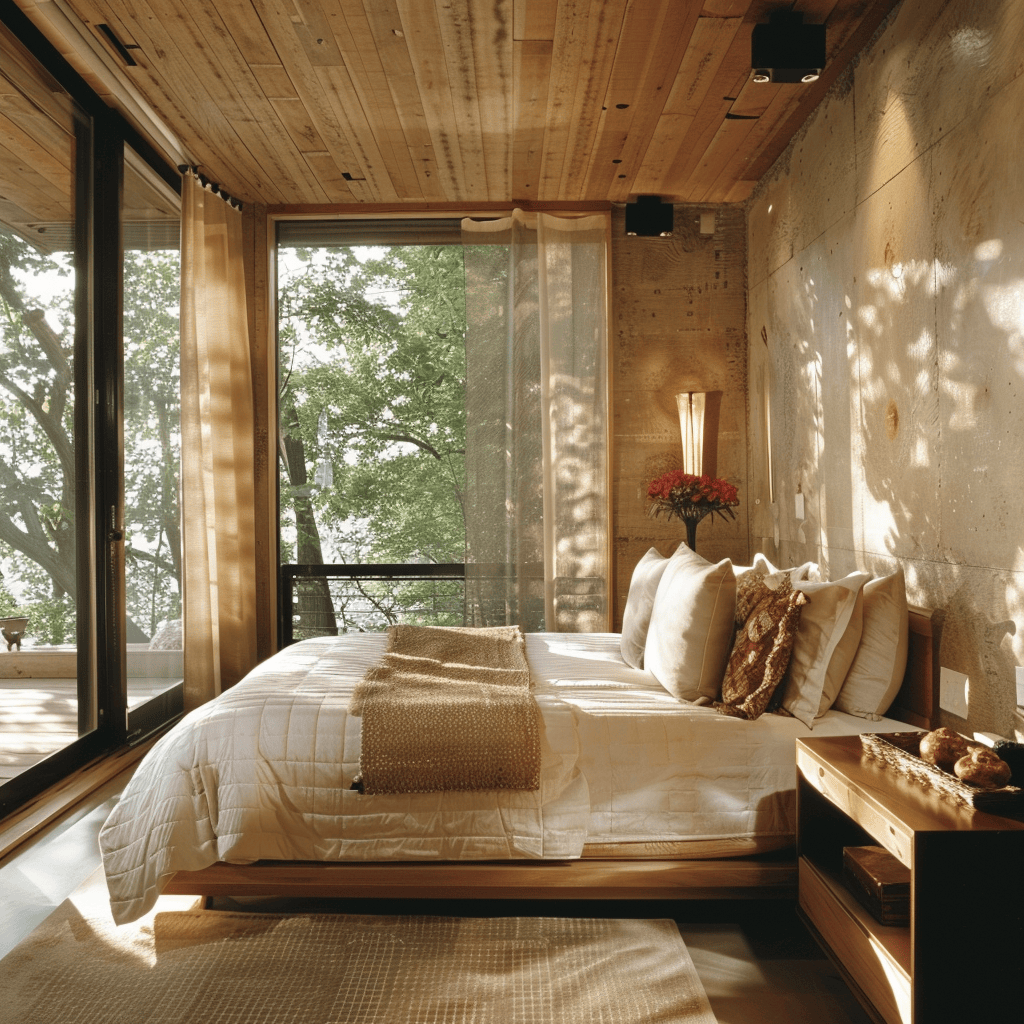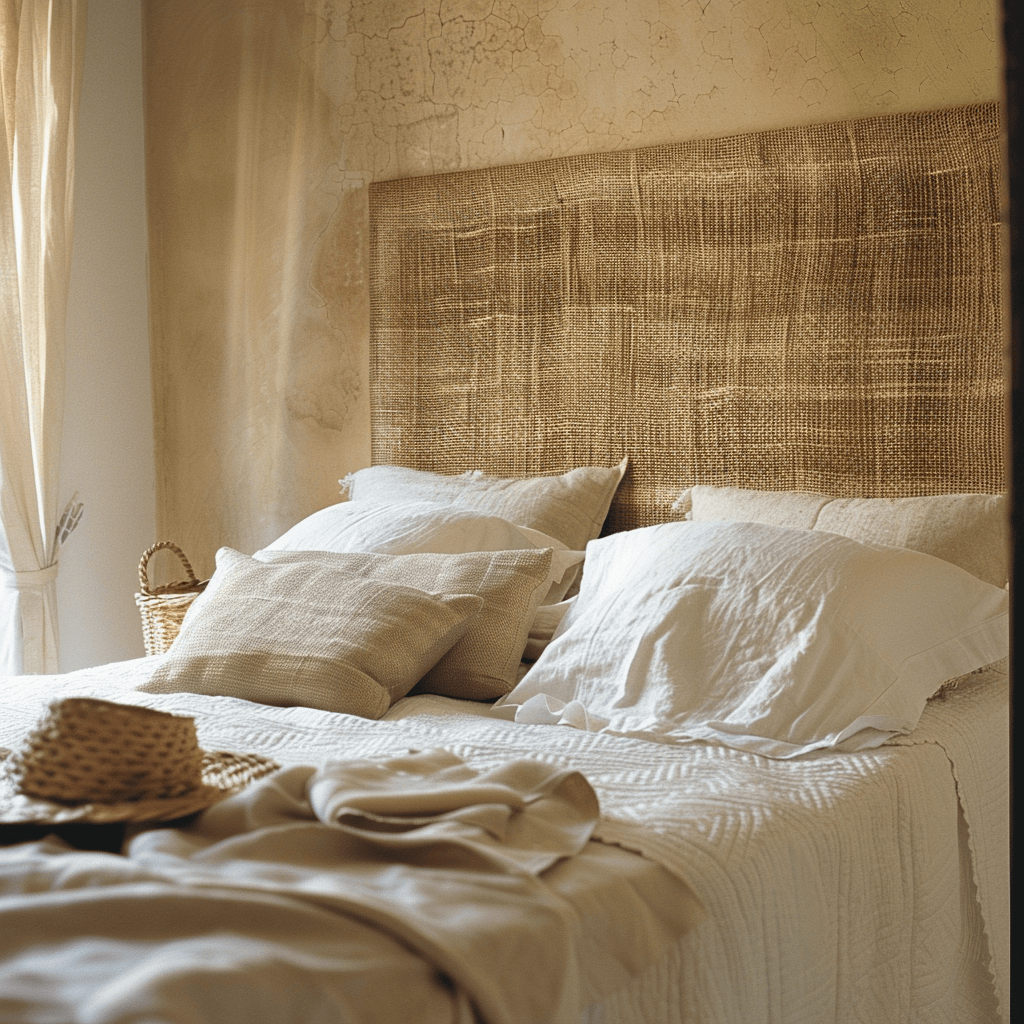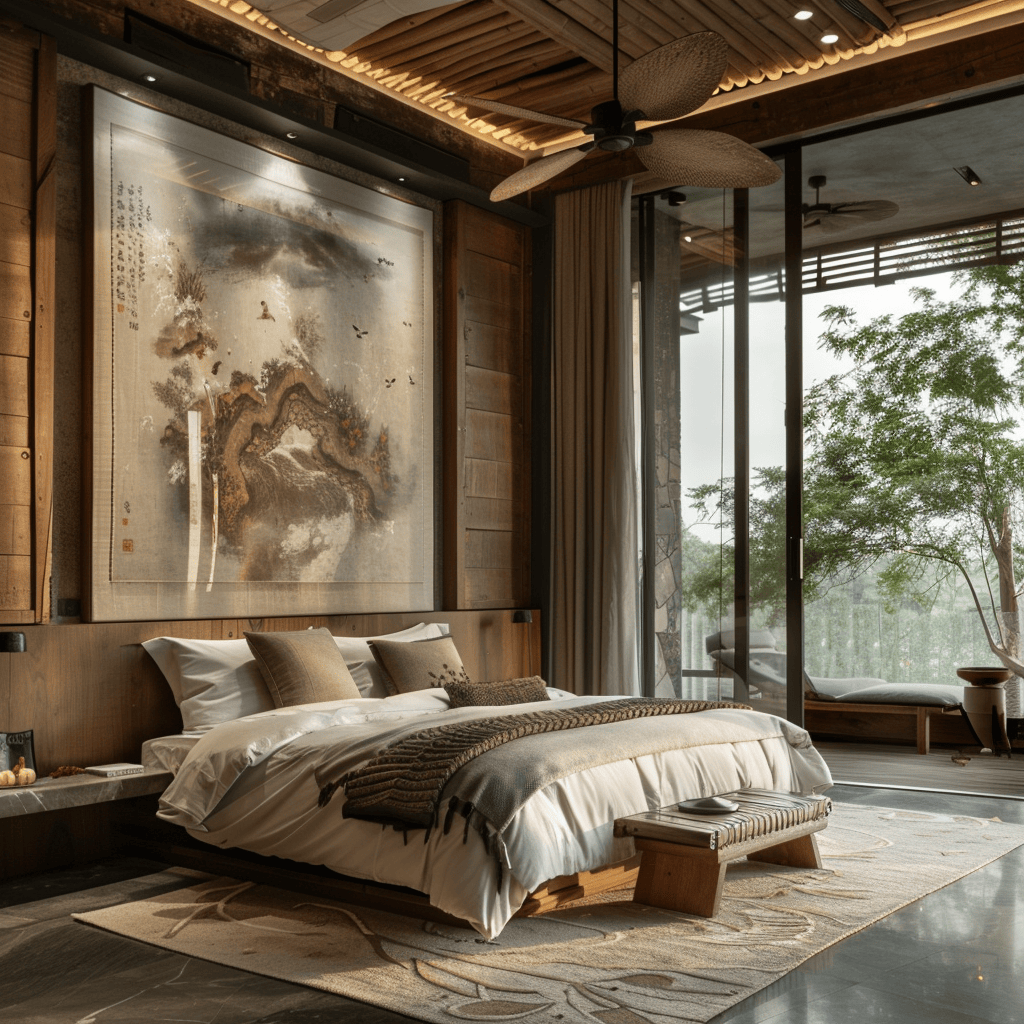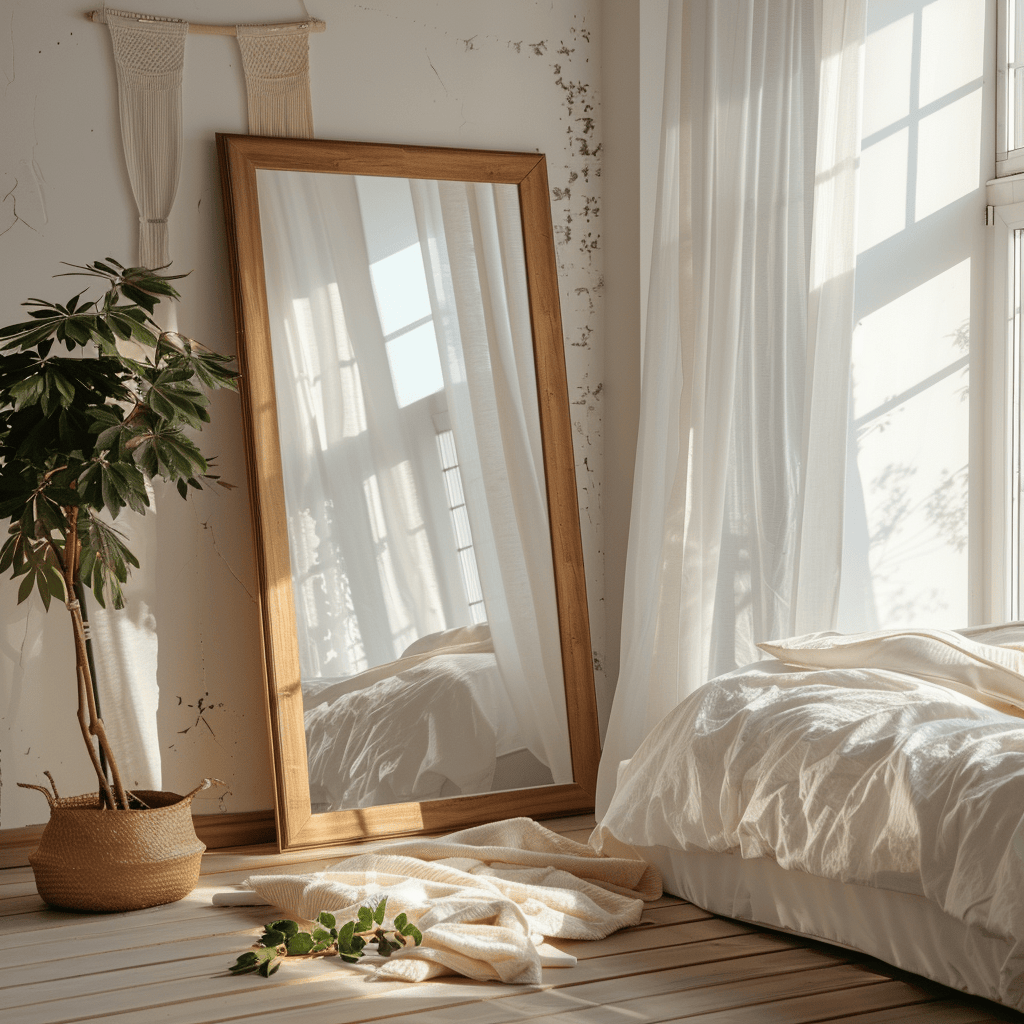
Newsletter Subscribe
Enter your email address below and subscribe to our newsletter
Imagine waking up every morning in a bedroom that feels like a peaceful oasis, perfectly designed to promote relaxation, rejuvenation, and harmony. My friend, what if I told you that by applying the ancient Chinese art of Feng Shui to your bedroom, you could transform your sleep space into a sanctuary that nurtures your mind, body, and soul? Keep reading to discover the secrets of creating a Feng Shui bedroom that will have you feeling more rested, energized, and inspired than ever before!

Feng Shui, the ancient Chinese art of placement, is all about creating a harmonious environment that promotes well being and prosperity. When applied to your bedroom, Feng Shui principles can help you create a peaceful, restorative space that supports relaxation and rejuvenation.

The five elements—wood, fire, earth, metal, and water—are the foundation of Feng Shui. Each element has its own unique energy and properties that can influence the overall feel of your bedroom. By incorporating these elements in a balanced way, you can create a space that feels harmonious and nurturing.

The Bagua map is a tool used in Feng Shui to help you understand how different areas of your bedroom correspond to different aspects of your life. By aligning your bedroom with the Bagua map, you can encourage positive chi flow and promote balance in your relationships, health, and personal growth.

The positioning of your bed is one of the most important aspects of Feng Shui in the bedroom. A well placed bed can promote feelings of safety, security, and relaxation, while a poorly placed bed can lead to restlessness and unease.

In Feng Shui, the commanding position is the ideal placement for your bed. This means positioning your bed diagonally opposite the door, with a clear view of the entrance. This placement allows you to feel in control of your space and promotes a sense of safety and security while you sleep.

Your headboard plays a crucial role in supporting your bed and creating a sense of stability and protection. Choose a headboard made from solid, sturdy materials like wood or upholstered fabric. Avoid headboards with perforations or cut-outs, as these can create a sense of vulnerability and unease.

Color has a profound impact on our emotions and energy levels. In Feng Shui, different colors are associated with different elements and can be used to create specific moods and atmospheres in your bedroom.

For a peaceful, restful bedroom, choose soft, muted colors like pale blue, lavender, or sage green. These colors are associated with the water and wood elements and promote feelings of calm and tranquility.

If you want to create a more passionate, intimate atmosphere in your bedroom, consider incorporating shades of red or pink. These colors are associated with the fire element and can help ignite romance and desire. However, use these colors sparingly, as too much can be overstimulating and lead to restlessness.

Clutter is the enemy of good Feng Shui. A cluttered bedroom can lead to feelings of stress, anxiety, and overwhelm, making it difficult to relax and unwind.

To create a serene, peaceful bedroom, start by decluttering your space. Remove any items that don’t belong in the bedroom, such as work materials, exercise equipment, or unfolded laundry. Keep surfaces clear and organized, and make sure every item has a designated home.

In Feng Shui, the space under your bed is considered an important energy center. Avoid storing items under your bed, as this can create stagnant energy and lead to feelings of stuck ness or stagnation. If you must use under bed storage, opt for soft, natural materials like cotton or linen, and avoid storing sharp or metallic objects.

Lighting plays a crucial role in creating a peaceful, restful bedroom atmosphere. In Feng Shui, natural light is considered the most beneficial, as it promotes feelings of vitality and well being.

To maximize natural light in your bedroom, position your bed near a window and keep curtains or blinds open during the day. If your bedroom doesn’t receive much natural light, consider using full-spectrum light bulbs that mimic the quality of sunlight.

For evening lighting, choose soft, warm toned bedside lamps that create a gentle, soothing glow. Avoid harsh, bright lighting that can be stimulating and disruptive to sleep. Position your lamps on either side of the bed to create a balanced, symmetrical look.

Incorporating the five elements, wood, fire, earth, metal, and water into your bedroom design can help create a balanced, harmonious space that promotes relaxation and rejuvenation.

To create a grounding, stabilizing energy in your bedroom, incorporate wood and earth elements. Choose furniture made from natural woods like oak, maple, or cherry, and opt for bedding and decor in earthy tones like brown, beige, or terracotta.

Water is associated with feelings of calm, clarity, and emotional balance. To incorporate water elements into your bedroom, consider adding a small fountain or aquarium, or choose artwork and decor with aquatic themes like ocean waves or peaceful rivers.

To ignite passion and intimacy in your bedroom, incorporate subtle fire elements like candles, red or pink accent pillows, or artwork with warm, vibrant colors. However, use fire elements sparingly, as too much can be overstimulating and lead to restlessness.

Metal elements can help create a sense of clarity, precision, and balance in your bedroom. Incorporate metal accents through picture frames, lamps, or decorative objects in shades of silver, gold, or bronze. Just be sure to balance metal elements with softer, more nurturing elements like wood and earth tones.

Adding plants to your bedroom can help purify the air, reduce stress, and promote feelings of calm and tranquility.

Some of the best air-purifying plants for the bedroom include snake plants, spider plants, and peace lilies. These plants help remove toxins from the air and promote better sleep by increasing oxygen levels and reducing carbon dioxide.

When placing plants in your bedroom, consider the Bagua map and the energy flow of your space. Avoid placing plants in the relationship corner of your bedroom, as this can lead to feelings of competition or conflict. Instead, place plants in the health and family area to promote growth, vitality, and well being.

Creating a peaceful, relaxing bedroom involves engaging all five senses—sight, sound, touch, smell, and taste.

Essential oils like lavender, chamomile, and ylang-ylang can help promote relaxation and reduce stress. Use an essential oil diffuser to fill your bedroom with calming scents, or sprinkle a few drops of oil on your pillowcase before bed.

Choose bedding and textiles made from soft, natural materials like cotton, linen, or bamboo. Avoid synthetic materials that can be scratchy or irritating to the skin. Opt for colors and patterns that promote feelings of calm and tranquility, like soft blues, greens, or neutrals.

Incorporating gentle, soothing sounds into your bedroom can help promote relaxation and better sleep. Consider using a white noise machine or a small fountain to create a peaceful background hum that blocks out disruptive noises.

Mirrors can be a powerful tool in Feng Shui, but they can also be disruptive to sleep if used incorrectly.

If you choose to use mirrors in your bedroom, place them in a way that reflects positive energy and natural light. Avoid placing mirrors directly across from the bed, as this can create a sense of unease and disrupt sleep.

In Feng Shui, it’s generally recommended to avoid placing mirrors in the bedroom altogether. If you do use mirrors, make sure they’re not broken or cracked, as this can create negative energy and lead to feelings of brokenness or incompleteness.

Creating a harmonious Feng Shui bedroom is especially important for couples sharing a space.

In Feng Shui, the concept of yin and yang represents the balance of masculine and feminine energies. To create a balanced space for both partners, incorporate elements that appeal to both energies, like a mix of soft and hard textures, or a blend of warm and cool colors.

To promote feelings of unity and connection in a shared bedroom, choose decor and furniture that feels cohesive and harmonious. Avoid creating separate spaces or “sides” of the room, as this can lead to feelings of disconnection or isolation.

While Feng Shui principles provide a helpful framework for creating a peaceful, harmonious bedroom, it’s important to personalize your space in a way that feels authentic and meaningful to you.

Incorporating sentimental items like photos, artwork, or heirlooms can help create a sense of personal connection and meaning in your bedroom. Just be sure to choose items that promote positive emotions and memories, and display them in a way that feels balanced and harmonious.

When selecting artwork for your bedroom, choose pieces that promote feelings of calm, tranquility, and relaxation. Avoid artwork with chaotic or violent themes, as this can create a sense of unease and disrupt sleep. Instead, opt for nature inspired prints, abstract designs, or pieces with soothing colors and patterns.
